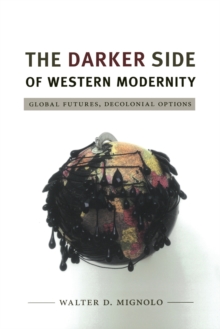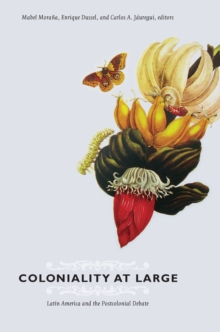
Wandering Peoples : Colonialism, Ethnic Spaces, and Ecological Frontiers in Northwestern Mexico, 1700-1850 PDF
by Radding Cynthia Radding
Part of the Latin America otherwise series
Please note: eBooks can only be purchased with a UK issued credit card and all our eBooks (ePub and PDF) are DRM protected.
Description
Wandering Peoples is a chronicle of cultural resiliency, colonial relations, and trespassed frontiers in the borderlands of a changing Spanish empire. Focusing on the native subjects of Sonora in Northwestern Mexico, Cynthia Radding explores the social process of peasant class formation and the cultural persistence of Indian communities during the long transitional period between Spanish colonialism and Mexican national rule. Throughout this anthropological history, Radding presents multilayered meanings of culture, community, and ecology, and discusses both the colonial policies to which peasant communities were subjected and the responses they developed to adapt and resist them.
Radding describes this colonial mission not merely as an instance of Iberian expansion but as a site of cultural and political confrontation. This alternative vision of colonialism emphasizes the economic links between mission communities and Spanish mercantilist policies, the biological consequences of the Spanish policy of forced congregacion, and the cultural and ecological displacements set in motion by the practices of discipline and surveillance established by the religious orders. Addressing wider issues pertaining to ethnic identities and to ecological and cultural borders, Radding's analysis also underscores the parallel production of colonial and subaltern texts during the course of a 150-year struggle for power and survival.
Radding describes this colonial mission not merely as an instance of Iberian expansion but as a site of cultural and political confrontation. This alternative vision of colonialism emphasizes the economic links between mission communities and Spanish mercantilist policies, the biological consequences of the Spanish policy of forced congregacion, and the cultural and ecological displacements set in motion by the practices of discipline and surveillance established by the religious orders. Addressing wider issues pertaining to ethnic identities and to ecological and cultural borders, Radding's analysis also underscores the parallel production of colonial and subaltern texts during the course of a 150-year struggle for power and survival.
Information
-
Download - Immediately Available
- Format:PDF
- Pages:432 pages
- Publisher:Duke University Press
- Publication Date:30/04/1997
- Category:
- ISBN:9780822398943
Information
-
Download - Immediately Available
- Format:PDF
- Pages:432 pages
- Publisher:Duke University Press
- Publication Date:30/04/1997
- Category:
- ISBN:9780822398943










